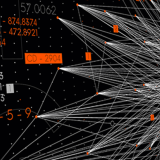EU context
Päätöksentekijöiden on saatava tietämystä, joka auttaa käsittelemään seuraavia kysymyksiä: tehokas sääntely, sosiaalisen suojelun varmistaminen käsitteen laajimmassa merkityksessä ja yritysten, yhteiskunnan ja yksilöiden tarpeiden tasapainottaminen käytettäessä hyväksi digitalisaation suurta potentiaalia.
Euroopan komissio hyväksyi digitaalisten sisämarkkinoiden strategiansa Eurooppaa varten vuonna 2015 ja korosti sitä yhtenä poliittisena prioriteettinaan. Strategia voi luoda digitaalisia mahdollisuuksia kansalaisille ja yrityksille, ja se pyrkii vahvistamaan EU:n johtavaa asemaa maailman digitaalitaloudessa. Tarkoituksena on lisätä tiedonsaantimahdollisuuksia, saada työpaikkoja niille, joilla on oikeat digitaaliset taidot, ja muokata julkisia palveluja. Kun yhteistyötalous leviää EU:ssa, komissio pyrkii kannustamaan uusien ja innovatiivisten palvelujen kehittämiseen varmistaen samalla riittävät suojatoimenpiteet. Komission vuoden 2016 Euroopan yhteistyötaloutta koskevassa toimintasuunnitelmassa selkeytetään tämän alueen sääntöjä ja toimintalinjasuosituksia kansalaisille, yrityksille ja jäsenvaltioille.
Eurofoundin toiminta
Eurofound tarkastelee, mitä laajempia vaikutuksia digitaaliteknologian kasvavalla osuudella työmarkkinoilla on työoloihin, työvoimaa koskevaan sääntelyyn ja muihin seikkoihin.
Myös palveluissa käytettävän käänteentekevän teknologian vaikutusta työllisyyteen tarkastellaan. Eurofound tutkii myös alustatalouden, varsinkin joukkotyön, vaikutusta työmarkkinoihin. Lisäksi jatketaan tutkimusta tieto- ja viestintätekniikkaan perustuvan mobiilin työn tekijöiden työoloista ja työehdoista.
Työn ja työllisyyden luonnetta digitaaliaikana tutkitaan keskittyen seuraaviin:
Keskeiset aikaansaannokset
Kansainvälisen työjärjestön (ILO) kanssa tehdyssä raportissa, joka koskee työskentelyä milloin ja missä tahansa, on tarkasteltu etätyön ja tieto- ja viestintätekniikkaan perustuvan liikkuvan työn vaikutusta tiettyihin työolojen näkökohtiin.
Eurofoundin seminaarisarja (FSS) on tilaisuus hallituksille, ammattiliitoille ja työnantajille keskustella EU:n sosiaali-, työllisyys- ja työhön liittyvien toimintalinjojen kehityksestä. Vuonna 2016 FSS keskittyi digitalisaation työhön kohdistuviin vaikutuksiin ja kansallisten ohjelmien laatimiseen digitaalisten muutosten toteuttamiseksi paremmin.



































